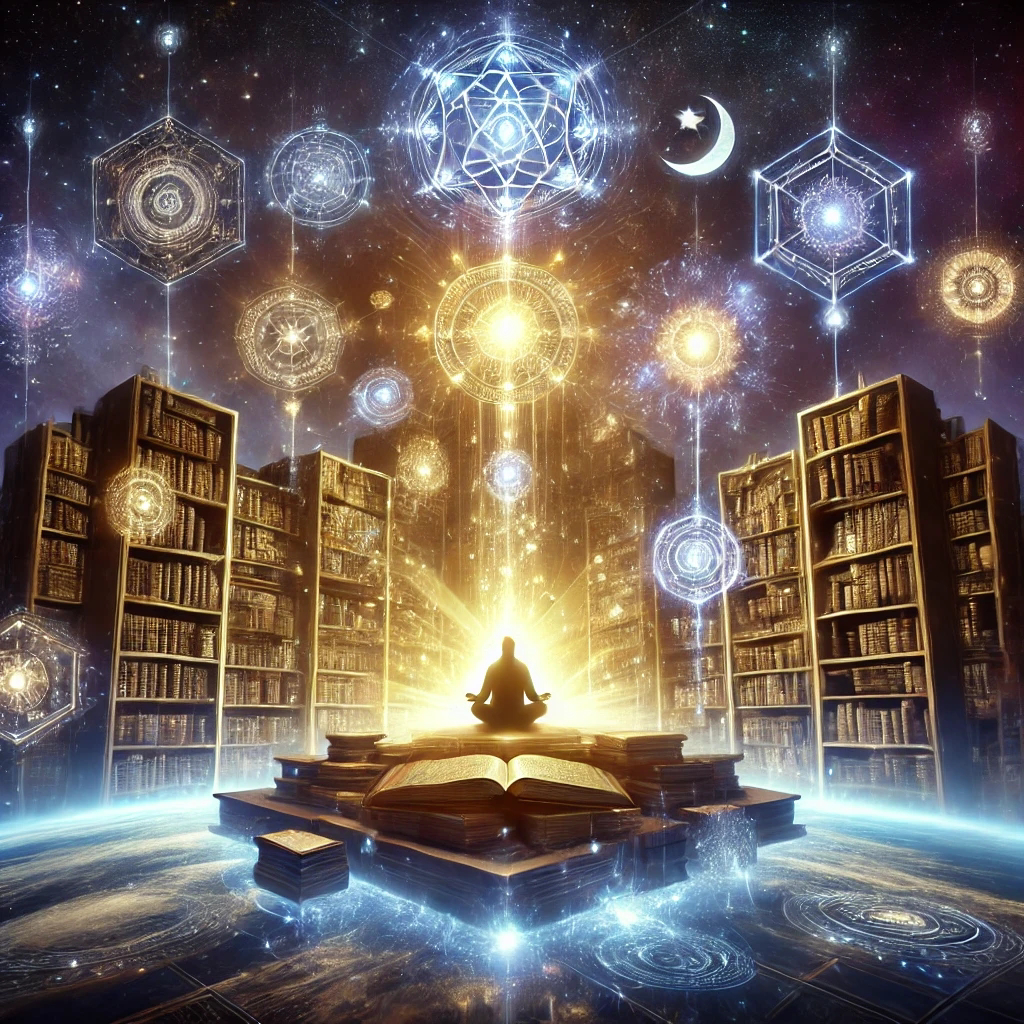Introduction
The Akashic Records are often described as a vast, ethereal library containing the history of every soul. Many spiritual traditions refer to them as a cosmic database of past, present, and future events. While modern science struggles to validate their existence, mystics, psychics, and seekers have long tapped into this wellspring of knowledge. But what exactly are the Akashic Records, and how do they work?
The Origins and Concept
The term “Akashic” comes from the Sanskrit word Akasha, meaning “ether” or “space.” The concept has roots in Hinduism, Buddhism, and Theosophy, all of which suggest that everything leaves an imprint on the energetic fabric of the universe. Some believe these records exist in a non-physical plane, accessible through deep meditation or heightened states of consciousness. Edgar Cayce, the famous 20th-century mystic, often accessed them to provide insights on health, past lives, and future predictions.
How the Akashic Records Function
Many describe the Akashic Records as a vibrational archive that stores thoughts, emotions, and experiences. These records are believed to be maintained by spiritual beings often referred to as “Record Keepers” or “Lords of the Records.” Some claim that each individual has a personal record that can be accessed for guidance on their soul’s journey. While interpretations differ, the central idea remains: the records serve as a blueprint for personal and collective evolution.
Accessing the Records: Is It Possible?
Practitioners claim that the Akashic Records can be accessed through meditation, hypnosis, or prayer. Some use structured methods like the “Pathway Prayer Process,” popularized by Linda Howe. Others rely on intuitive downloads or spontaneous visions. The key, they argue, is an open mind and an elevated vibrational state.
The Role of Intuition and Consciousness
Intuition is often considered the bridge to the Akashic Records. Many seekers report receiving insights in dreams, flashes of inspiration, or sudden knowing. Consciousness plays a vital role, as a quiet, receptive mind is more likely to perceive subtle energetic imprints. Skeptics argue that such experiences are merely psychological phenomena, but believers insist that they are tapping into something real.
Skepticism and Scientific Criticism
From a scientific standpoint, the Akashic Records remain unproven. There is no empirical evidence to confirm their existence beyond anecdotal accounts. Cognitive psychology suggests that memory, imagination, and subconscious pattern recognition might explain the phenomenon. Yet, the persistence of similar experiences across cultures raises intriguing questions about the nature of reality.
Ancient Wisdom and Cross-Cultural Parallels
Many traditions echo the idea of a universal knowledge repository. In Christianity, it is the “Book of Life.” In Sufism, it is the “Guarded Tablet.” Even quantum physics flirts with similar concepts, such as the holographic universe theory. These parallels suggest that the Akashic Records might not be a literal library but rather a metaphor for deeper layers of consciousness.
Practical Applications: Why Seek the Records?
Believers turn to the Akashic Records for healing, self-discovery, and spiritual growth. Some claim they reveal past-life karma, allowing individuals to break harmful cycles. Others use them for guidance on major life decisions. Whether real or imagined, many find the practice profoundly transformative.
Ethical Considerations and Limitations
Accessing the records raises ethical questions. Can information be misused? Are all individuals meant to know their past lives? Many practitioners stress the importance of seeking knowledge responsibly, with pure intent. The goal, they argue, is personal growth—not voyeurism or manipulation.
Final Thoughts: A Mystery Worth Exploring
The Akashic Records remain an enigma. Whether they are an actual energetic database or a psychological construct, they offer valuable insights to many. The human quest for meaning and knowledge drives us to explore such mysteries. Perhaps the real power lies not in the records themselves but in our ability to expand our consciousness in search of truth.
Stay curious.




